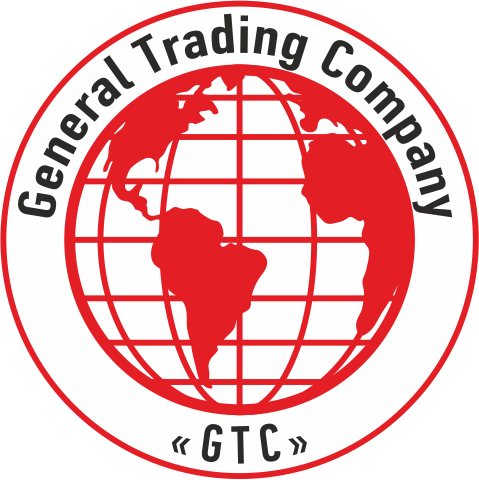
Content Oriented Web
Make great presentations, longreads, and landing pages, as well as photo stories, blogs, lookbooks, and all other kinds of content oriented projects.
SPICES, ESSENTIAL OILS AND RESIN
Discover the taste that launched a thousand ships. Sri Lanka is the only source of true Ceylon cinnamon, and our terroir has had a great influence on the taste of all Ceylon spices, turning them into a special ingredient of flavor and aroma.
Spices, essential oils & oleoresins
Spices, essential oils & oleoresins discover the flavour that launched a thousand ships. Sri-Lanka is the only source for true Ceylon cinnamon and our terroir has greatly influenced the flavour of all the Ceylon spices, making them a distinct ingredient of flavour and fragrance.
Spices and related products
Sri Lanka, the only supplier of true cinnamon to the world, had been a global destination for the finest quality spices since time immemorial. Global superpowers in the 15th Century waged war over trading rights for Ceylon Cinnamon and Pepper, making Ceylon Spices, the flavour that launched a thousand ships. Today, Sri Lanka is a leading exporter of Ceylon Cinnamon, Ceylon Pepper, Ceylon Cloves, Ceylon Nutmeg and Ceylon Cardamom, all branded under the geographical indication of Ceylon Spices due to their unique aroma and flavour shaped by the terroir of the country. In addition, spice manufacturers in Sri Lanka also supply a range of essential oils and oleoresins derived from the spices grown in Sri Lanka.
Known as the Spice Island, Sri Lanka was historically attractive to the Western nations for its spice riches. Sri Lankan Spices and Allied products Suppliers export the most sought-after cinnamon, pepper, cloves, cardamoms, nutmeg, mace and vanilla. These grow in abundance all over the island in fertile and diverse soil types and varying temperature conditions.
Sri Lankan agricultural exports consist of spices, allied products and essential oils. These varieties of condiments are used to season, flavour and aromatise various forms of cuisines across the world.
Cinnamon is the most important spice commodity among the spice sector. People in ancient Sri Lanka used Cinnamon for many purposes such as, medicine, spice, perfumery material & soft drink. At present the cinnamon is widely used in bakery products, pharmaceutical preparations & cosmetics worldwide. Cinnamon exports in primary form as well as in the value added form such as cut pieces, powder form and crushed form. Cinnamon is considered as unique product exporting from Sri Lanka. Sri Lanka is the world largest producer & exporter of Cinnamon to the world. Cinnamon has originated in Sri Lanka & it has unique characteristics, which can be branded under GI protection. Accordingly Ceylon Cinnamon introduced to the international market as a branded product namely "Pure Ceylon Cinnamon" which reflects a combination of several intrinsic characteristics of Cinamomum Zylanicum.
Sri Lankan pepper has high intrinsic quality. The Sri Lankan Pepper has higher piperine content which gives it a superior quality and pungency. Pepper is offered in different grades for grinding and extraction of essential oils and oleoresins. In Sri Lanka pepper is grown in the wet and intermediate zones mostly as mixed crops.
nutmeg and mace also have high aromatic flavour. Sri Lankan cloveis found to be richer in oil than those from other growing countries in the world. The odour, flavor and oil contents are the important criteria of cloves. Cardamom is popularly known as 'Queen of Spice'. Cardamom lands are generally termed as spice forests. Cardamomexports from Sri Lanka constitute light green verities. Nutmeg & mace are two distinctly separate spices derived from the same plant. It is an evergreen tree which grows in the up country in Sri Lanka.
ginger, turmeric and vanilla. Vanilla fragrance is important as a source of natural vanilla. It is used as a flavour ingredient in confectionary industry and also in perfume and pharmaceutical industries. The production of spice crops continues to be largely confined to mix home gardens particularly for pepper, cloves, nutmeg and cardamom. 70% of the Cinnamon is grown as a pure crop in small holdings. Further, out-grower systems and community based cultivations are linked with the exporters.
export companies can certify under GMP, HACCP & ISO, would receive more opportunities in the international trade
Spice exports have indicated US$ 214Mn in year 2011 indicating 11.73% of growth. Net foreign exchange earnings from Spices & Allied product sector is recording above 80%.
Sri Lanka has taken several steps to enhance and improve the spice industry. Processing centres have been upgraded to achieve international quality standards such as HACCP. More emphasis is given to improve agronomic practices by educating farmers on good agricultural practices. Small producers are encouraged to follow good manufacturing practices when drying and processing these products.
With the increase of international demand for natural products, and the island's focus on enhancing and evolving its value added range, spices will continue to be a key facet of Sri Lanka's export income.
Known as the Spice Island, Sri Lanka was historically attractive to the Western nations for its spice riches. Sri Lankan Spices and Allied products Suppliers export the most sought-after cinnamon, pepper, cloves, cardamoms, nutmeg, mace and vanilla. These grow in abundance all over the island in fertile and diverse soil types and varying temperature conditions.
Sri Lankan agricultural exports consist of spices, allied products and essential oils. These varieties of condiments are used to season, flavour and aromatise various forms of cuisines across the world.
Cinnamon is the most important spice commodity among the spice sector. People in ancient Sri Lanka used Cinnamon for many purposes such as, medicine, spice, perfumery material & soft drink. At present the cinnamon is widely used in bakery products, pharmaceutical preparations & cosmetics worldwide. Cinnamon exports in primary form as well as in the value added form such as cut pieces, powder form and crushed form. Cinnamon is considered as unique product exporting from Sri Lanka. Sri Lanka is the world largest producer & exporter of Cinnamon to the world. Cinnamon has originated in Sri Lanka & it has unique characteristics, which can be branded under GI protection. Accordingly Ceylon Cinnamon introduced to the international market as a branded product namely "Pure Ceylon Cinnamon" which reflects a combination of several intrinsic characteristics of Cinamomum Zylanicum.
Sri Lankan pepper has high intrinsic quality. The Sri Lankan Pepper has higher piperine content which gives it a superior quality and pungency. Pepper is offered in different grades for grinding and extraction of essential oils and oleoresins. In Sri Lanka pepper is grown in the wet and intermediate zones mostly as mixed crops.
nutmeg and mace also have high aromatic flavour. Sri Lankan cloveis found to be richer in oil than those from other growing countries in the world. The odour, flavor and oil contents are the important criteria of cloves. Cardamom is popularly known as 'Queen of Spice'. Cardamom lands are generally termed as spice forests. Cardamomexports from Sri Lanka constitute light green verities. Nutmeg & mace are two distinctly separate spices derived from the same plant. It is an evergreen tree which grows in the up country in Sri Lanka.
ginger, turmeric and vanilla. Vanilla fragrance is important as a source of natural vanilla. It is used as a flavour ingredient in confectionary industry and also in perfume and pharmaceutical industries. The production of spice crops continues to be largely confined to mix home gardens particularly for pepper, cloves, nutmeg and cardamom. 70% of the Cinnamon is grown as a pure crop in small holdings. Further, out-grower systems and community based cultivations are linked with the exporters.
export companies can certify under GMP, HACCP & ISO, would receive more opportunities in the international trade
Spice exports have indicated US$ 214Mn in year 2011 indicating 11.73% of growth. Net foreign exchange earnings from Spices & Allied product sector is recording above 80%.
Sri Lanka has taken several steps to enhance and improve the spice industry. Processing centres have been upgraded to achieve international quality standards such as HACCP. More emphasis is given to improve agronomic practices by educating farmers on good agricultural practices. Small producers are encouraged to follow good manufacturing practices when drying and processing these products.
With the increase of international demand for natural products, and the island's focus on enhancing and evolving its value added range, spices will continue to be a key facet of Sri Lanka's export income.
Join us!
Subscribe
Mailing GTC Global
2022 GTC Global
Privacy Policy
Site map







